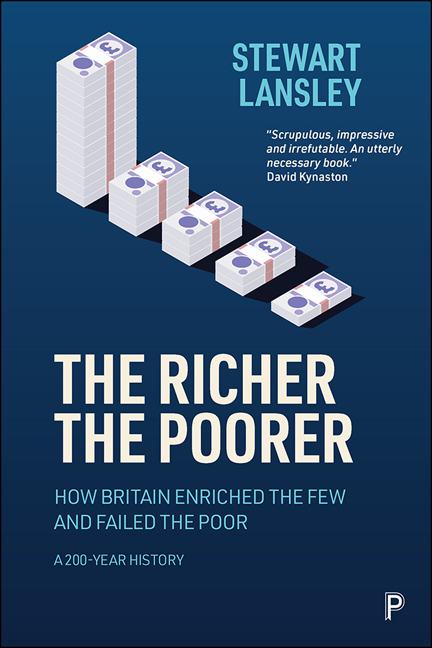Book contents
- Frontmatter
- Miscellaneous Frontmatter
- Dedication
- Epigraph
- Contents
- List of figures
- Preface and acknowledgements
- Introduction: Knighthoods for the rich, penalties for the poor
- PART I 1800–1939
- PART II 1940–59
- PART III 1960–79
- PART IV 1980–96
- PART V 1997–2010
- PART VI 2011–20
- Afterword: COVID-19 and ‘the polo season’
- Notes
- Index
Introduction: Knighthoods for the rich, penalties for the poor
Published online by Cambridge University Press: 13 May 2022
- Frontmatter
- Miscellaneous Frontmatter
- Dedication
- Epigraph
- Contents
- List of figures
- Preface and acknowledgements
- Introduction: Knighthoods for the rich, penalties for the poor
- PART I 1800–1939
- PART II 1940–59
- PART III 1960–79
- PART IV 1980–96
- PART V 1997–2010
- PART VI 2011–20
- Afterword: COVID-19 and ‘the polo season’
- Notes
- Index
Summary
In February 2019, a campaigning American entrepreneur, Yarron Brook, arrived for his third successive annual speaking tour of Britain. Chair of the California-based, pro-market and anti-state Ayn Rand Institute, and the coauthor of Equal is Unfair: America's Misguided Fight against Income Inequality, Brook was a determined critic of the global calls for more equal societies. During these visits, he spoke to thousands of students at universities and top public schools, from Harrow to Westminster, on the virtues of free markets and the merits of inequality. To a crowded lecture room of sixth formers and teachers at Eton College, he outlined Ayn Rand's philosophy of unbridled capitalism spelled out in her 1957 fantasy novel of godlike tycoons, Atlas Shrugged. The 2008 global meltdown, he explained, was caused, not by out-of-control financiers but by “too much statism”. The rich, he declared, “deserve their wealth” and “everything we are told about inequality is wrong”.
While Brook was lecturing Britain's most privileged young people, official statistics showed almost one in three children –4.2 million –to be in poverty, a figure close to record post-war levels. Over the previous four decades, Britain had moved from being one of the most equal to one of the most unequal of rich nations, while the poorest fifth of Britons are now poorer than the comparable group in many countries with lower overall inequality.
While Brook's pro-rich ideology went against the grain of a growing national and global concern about inequality, his views were shared in influential political circles. A year after the 2008 global financial crisis, Lord Griffiths, a former adviser to Mrs Thatcher and the vice-chair of Goldman Sachs International, told an audience at London's St Paul's Cathedral that the public has to “tolerate inequality as the price to be paid for prosperity”. When he was London mayor, and just a few years before he moved into Downing Street, Boris Johnson, giving the third Margaret Thatcher lecture, told his audience that the top 10 per cent should be feted with “automatic knighthoods”.
- Type
- Chapter
- Information
- The Richer, the PoorerHow Britain Enriched the Few and Failed the Poor: A 200-Year History, pp. 1 - 6Publisher: Bristol University PressPrint publication year: 2021



